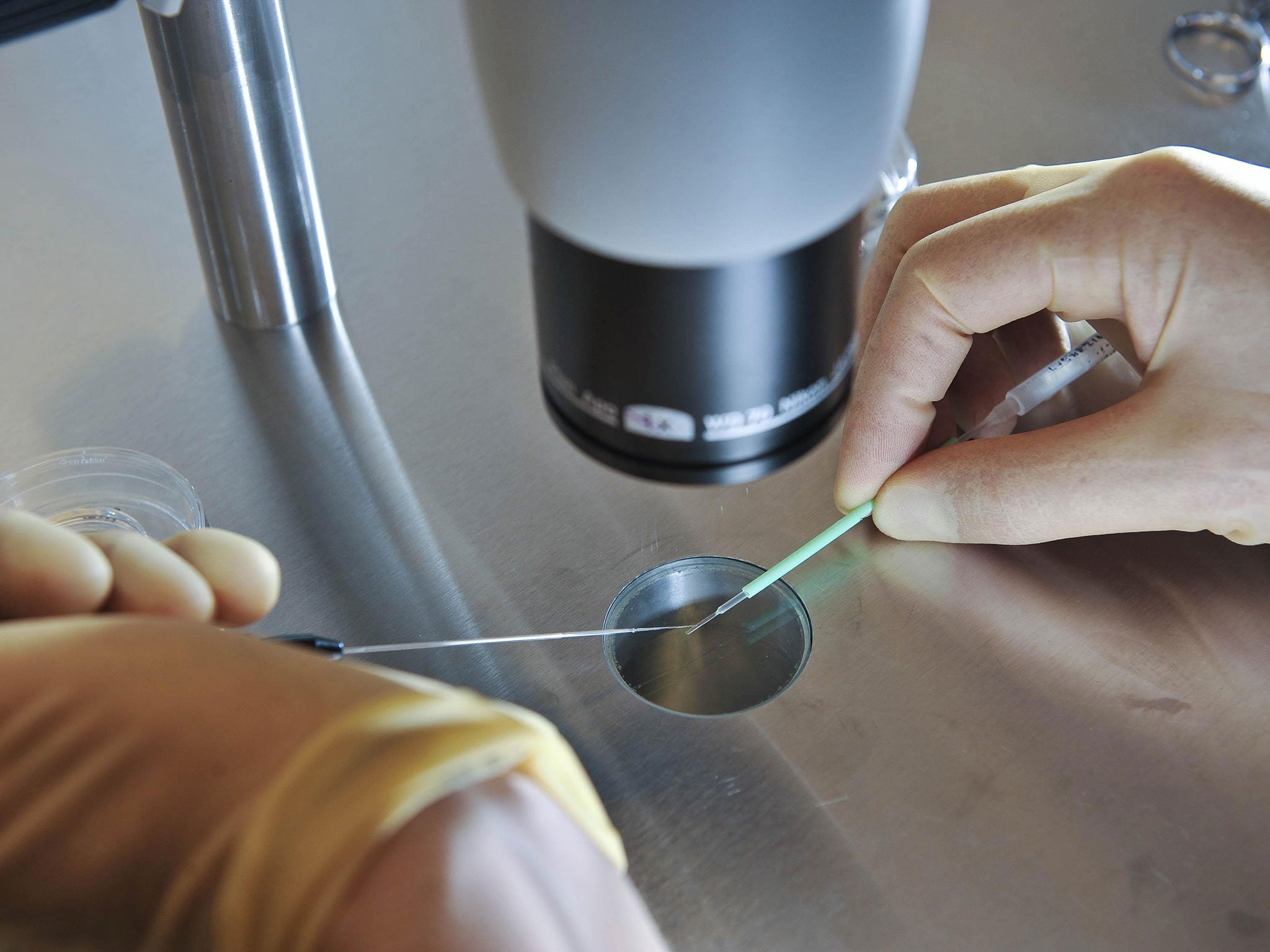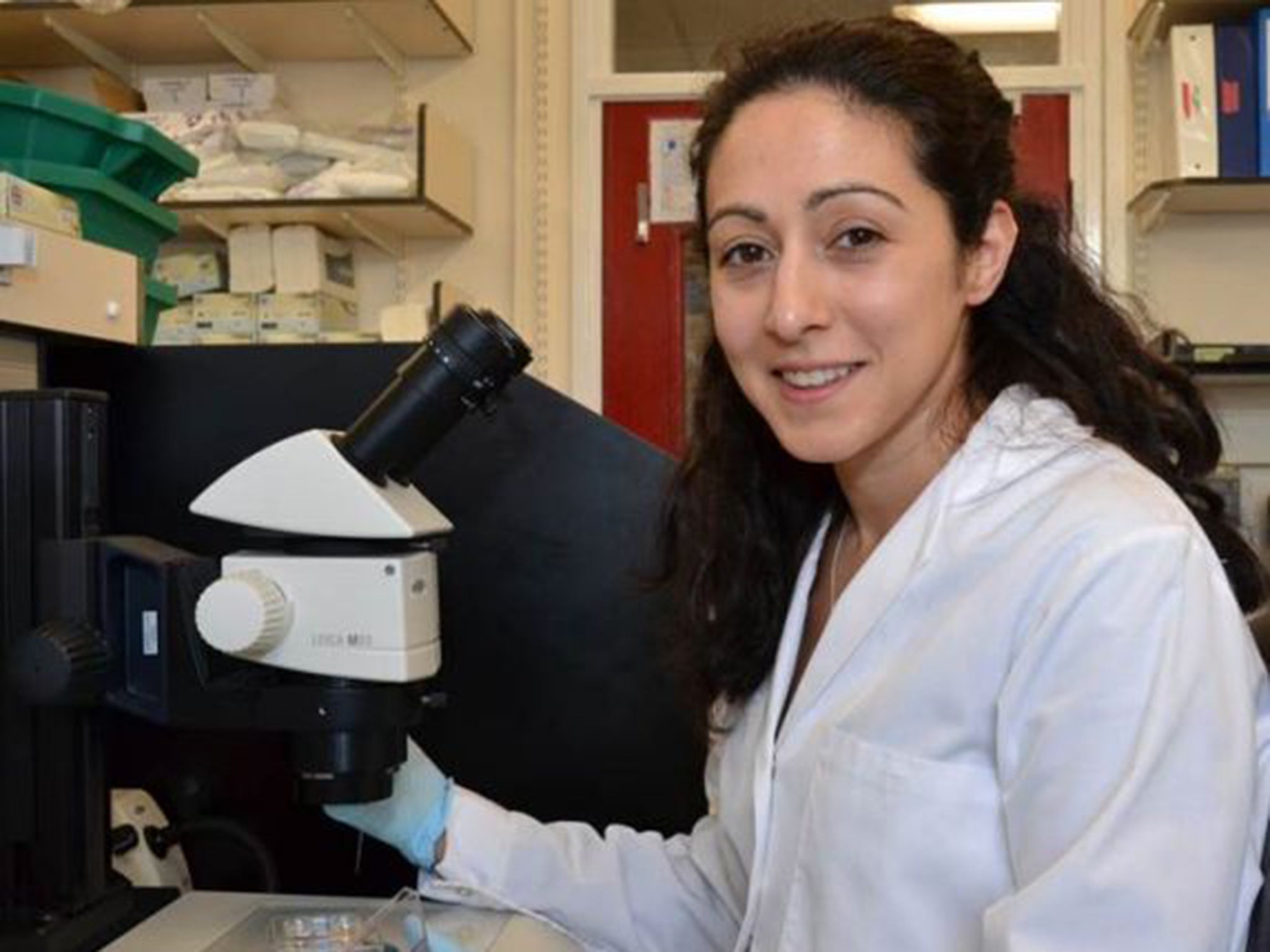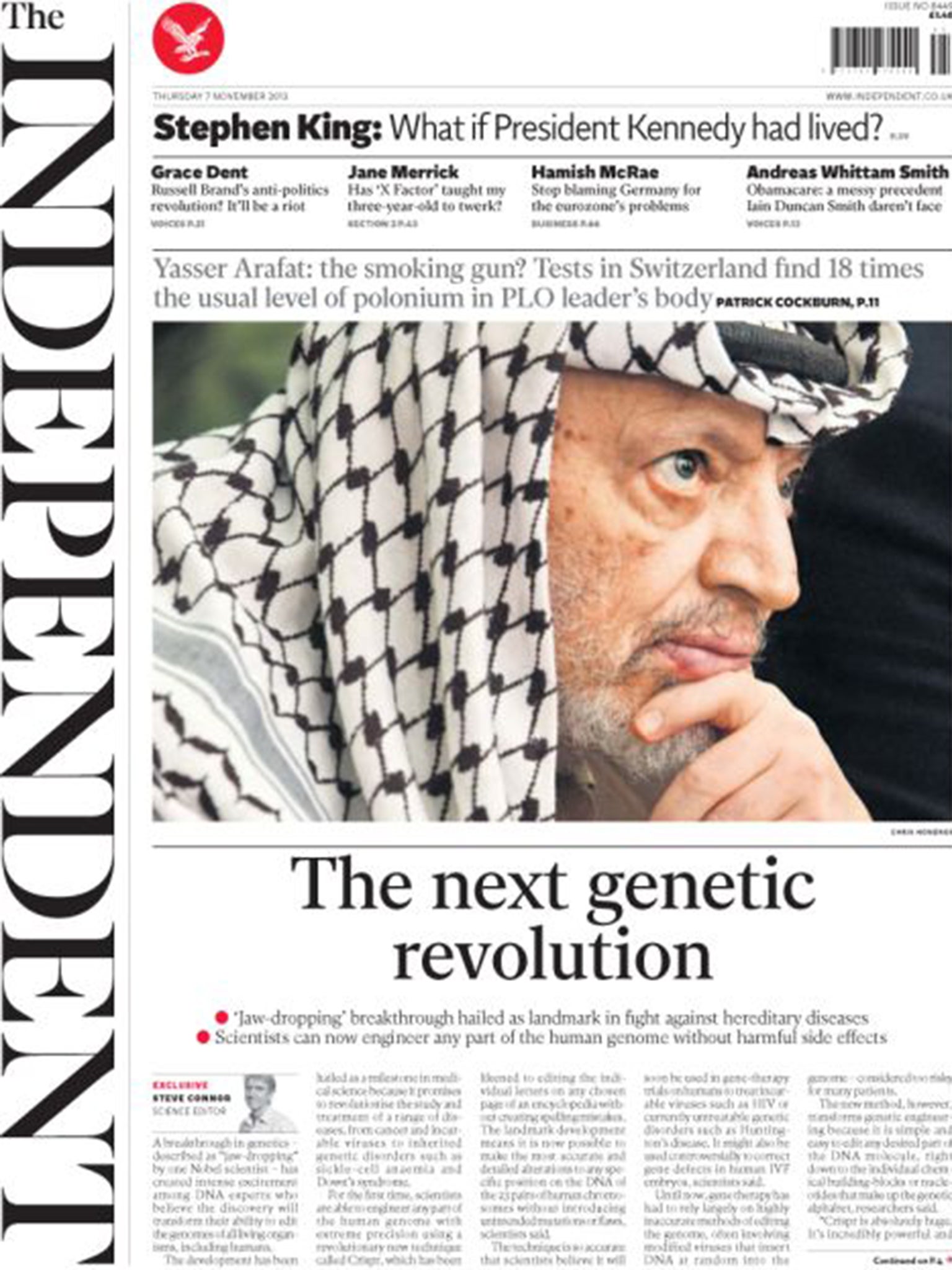UK scientists get green light to genetically modify human embryos
The technique could help explain and ultimately eradicate many diseases in humans - but it is not without controversy

Scientists in the UK will be allowed to genetically modify human embryos for the first time in history, after they received a licence to go ahead with groundbreaking research into the early stages of human life.
Permission has been granted to alter the DNA of embryos in the first seven days after fertilisation, and could provide clues in the short term as to what causes miscarriage in women.
It remains illegal for the scientists to implant the altered embryos into women, but the decision represents a huge landmark in the use of revolutionary gene-editing technology known as Crispr-Cas9.
The licence was granted by the UK's independent Human Fertilisation and Embryology Authority (HFEA). The committee added a caveat that no gene editing can take place until the research receives separate approval from an ethics panel, which could be achieved by March.
The project is being led by Dr Kathy Niakan at the Francis Crick Institute in London, and colleagues said they were "delighted" her licence application had been approved.
Much of Dr Niakan's application was dedicated to addressing the ethical issues surrounding the editing of human embryos. After the passing of the Human Fertilisation and Embryology Act in 2008, the UK has some of the strongest legislation in the world in this field.
The research will see scientists cutting into the genetic code of embryos, isolating individual segments of DNA and assessing how they contribute to the early growth and behaviour of the embryos.
An embryo only has around 250 cells at the seven-day point of development, and a high proportion are simply absorbed into the placenta. Understanding which genes dictate this could dramatically improve IVF success rates in future.

The project will use surplus embryos from IVF treatment which would have been destroyed anyway, and women will be required to give specific consent for them to be used in this way.
Crispr-Cas9 is an immensely powerful technique invented three years ago which allows DNA to be "cut and pasted" using molecular "scissors".
It could lead to huge leaps forward in science and medicine but critics have warned that the pace of change is too fast.
They fear misuse of such technology could lead to potentially dangerous treatments and "designer babies".

One major concern is that making changes to embryonic DNA could have unknown harmful effects throughout an individual's body. There is also the risk of passing genetic "mistakes" on to future generations.
But scientists hailed the decision on Monday as an "encouraging step" in the road to Crispr-Cas9 producing clinical results.
Professor Peter Braude, an expert in obstetrics and gynaecology from King's College London, said: "I am delighted to hear that the HFEA have had the good sense to approve this important project.
"Gene editing tools will allow fresh insights into the basic genetic mechanisms that control cell allocation in the early embryo.
"These mechanisms are crucial in ensuring healthy normal development and implantation, and when they go wrong might result in failure to implant or miscarriage. I await results with interest."
Bruce Whitelaw, professor of animal biotechnology at the Roslin Institute, University of Edinburgh, said: "This project, by increasing our understanding of how the early human embryo develops and grows, will add to the basic scientific knowledge needed for devising strategies to assist infertile couples and reduce the anguish of miscarriage.
"More broadly, this approval is another example of the lead position UK scientists are taking in evaluating the exciting new genome editing technology - which ranges from advances in human reproduction, to controlling the spread of insect-borne diseases, to precision breeding in plant and livestock agriculture."
And Dr Sarah Chan, chancellor's fellow at the Usher Institute for Population Health Sciences and Informatics, University of Edinburgh, said: "This is an encouraging step as it demonstrates that good science and effective ethical oversight can go hand in hand.
"Dr Niakan's research into the biology of early human development is valuable both for scientific knowledge and the therapeutic applications it may eventually produce, for example in treating infertility and in stem cell therapies.
Join our commenting forum
Join thought-provoking conversations, follow other Independent readers and see their replies
Comments
Bookmark popover
Removed from bookmarks